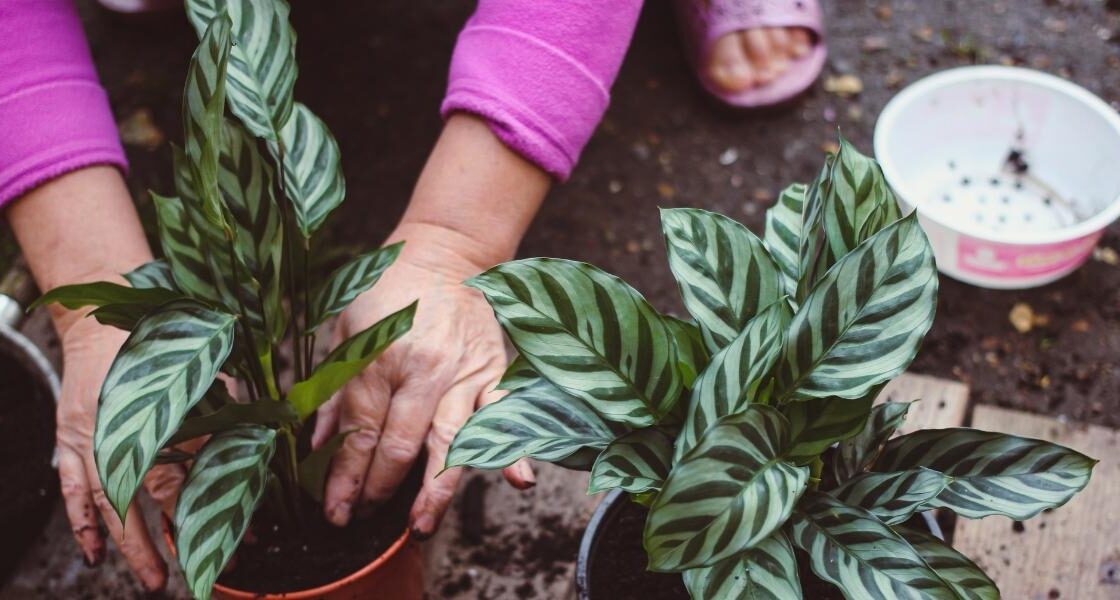With English and Vietnamese voices and subtitles.
Bộphim này được thực hiện bằng tiếng Anh và tiếng Việt có phụđề
Funding from Islington and Shoreditch Housing Association.
We created this project in partnership with Vietnamese Family Partnership and in association with New Earth Theatre.
Supported by Park Pharmacy.
What significance does tending a home garden have for London's Vietnamese community? What can we learn about belonging, home and culture from London's Vietnamese gardens?
Join four young people as they explore London’s Vietnamese home gardens with the people who tend them, unearthing the stories and meanings behind this work. Co-curated project with the Vietnamese community, four young people were upskilled before carrying out their own interviews with members of the older Vietnamese community in London.
This exhibition looks at what this space means to the interviewees and what kind of traditions they take part in during the winter, such as growing Winter Melon, a common marrow in many Vietnamese households as it stays fresh for up to a year.
The film was created with Vietnamese Family Partnership (VFP, or Gia Đình Việt), our main partner in the project. Providing consultation and helping to source participants, they also assisted in shooting, editing and helping to put this film together. Home Grown and the accompanying exhibition are the result of this collaboration.
CỘI RỄ: VƯỜN NHÀ
Có một khu vườn tại nhà đểchăm nom có ý nghĩa như thếnào đối với cộng đồng người Việt ởLondon? Chúng ta có thểhọc được gì vềsựgắn bó, tình cảm quê hương và văn hóa từnhững khu vườn Việt ởLondon?
Hãy tham gia cùng bốn bạn trẻkhi họkhám phá các khu vườn Việt ởLondon với những người đã chăm sóc vườn nhà, đểkhám phá những câu chuyện và ý nghĩa đằng sau công việc này.
Watch the film
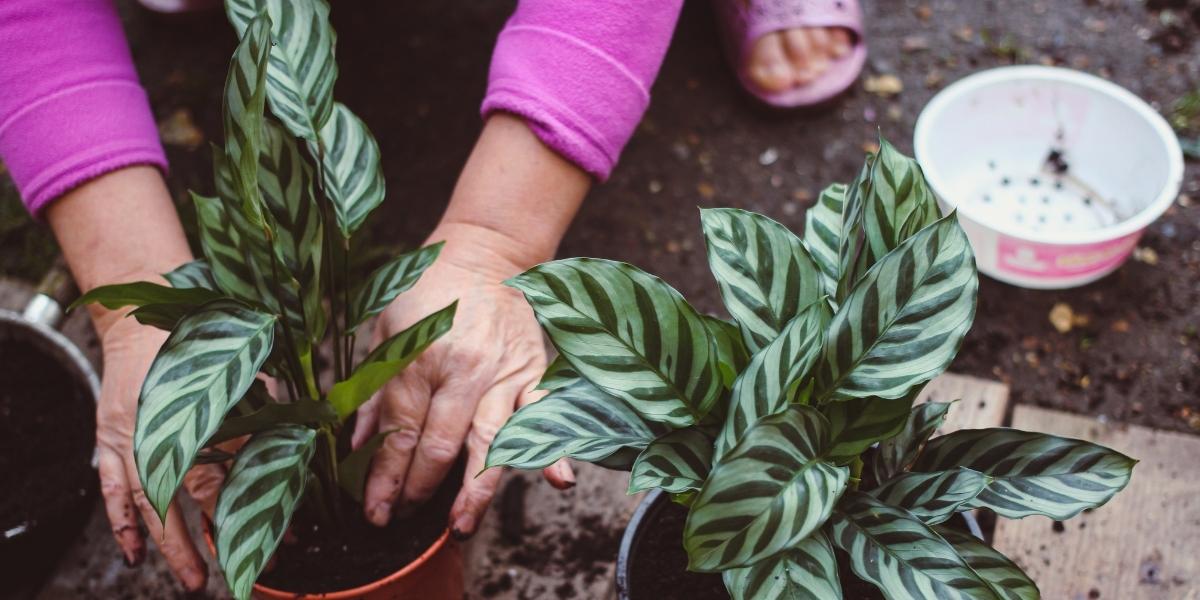
Roots: Home Grown
0:23 – 0:49
Bà Loan: I feel Vietnamese practice is very functional, so things can be beautiful but you also just, you know, use the space how you can.
Ông Nguyễn: I can admire the garden, I can also enjoy the taste of my homeland, that’s what I like the most.
Bà Huynh: Vietnamese people like to grow their food at home, so it’s organic and has no chemicals
[Music]
0:51
Walthamstow
0:57 – 1:48
Chú Yen: Hello Leon! Coming in? So yeah, here’s my garden. Tiny garden anyway.
Ban Leon: I like the environment that you made for yourself. It’s like, really peaceful.
Chú Yen: It’s not like this from the beginning. I moved here about more than 10 years ago. At that time it was quite a poor garden – poor soy, and small plants. In my hometown, the capital of Vietnam, we don’t have a big land, we have a small spot as well. We can grow small plants, like a veg or a herb. We try to combine both of them together to connect to my hometown.
Ban Leon: It’s more like a mixing pot that has a lot of different cultures of plants together.
Chú Yen: I think this garden needs to take time. The more you understand them, the more you get enjoyable and happiness.
[Music]
2:01
Greenwich
2:08 – 2:28
Bạn Mai: How does this garden make you feel?
Ông Nguyễn: It has so much meaning to me, I feel like I am back in my homeland.
I am not, but I do these things to remember. I don’t have to visit my homeland to get this feeling.
[Music]
2:32
Archway
2:39 – 3:12
Bạn Mai: Hello, mum
Bà Loan: Hello, Mai
Bạn Mai: I’m really happy that we are getting some time to talk about the garden, your garden—
Bà Loan: Our garden.
Bạn Mai: Our garden, because I know how special it is to you.
Bà Loan: You might not know there was a Vietnamese person growing the things in this garden, but there’s a – there’s a lushness about it and a bit of organised chaos as well, which is like the traffic in Vietnam.
Funny enough, that very, you know, colour and lushness is like a connecting thing.
[Music]
3:18
Lewisham
3:25 – 4:18
Bà Huynh: After my exercises, I water my plants.
Bạn Anna: When did you come to England?
Bà Huynh: By the year… probably… 1969
Bạn Anna: A Vietnamese gentleman shared with me, in Vietnam, back in the days, you needed wisdom to grow food… He said you needed this wisdom, to grow food, if you didn’t have money you had food to use as currency to..to..trade with and survive.
Bà Huynh: In Vietnam there was no Tesco, no Sainsbury’s. Only now we have supermarkets, so people need to learn how to grow vegetables, cabbages, kohlrabi and winter melon.
4:23 – 4:39
Bạn Mai: What are these fruits used for?
Ông Nguyễn: These winter melons are extremely good. They can keep fresh all year round and not spoil.
This is the reason I grow winter melons to eat all year round.
4:41 – 5:00
Bà Huynh: Within a month it can grow up to 20cm (measured by hand).
When it is up to 20cm then in May, June, when it’s warm, I grow them in the garden.
Taking care of winter melons is like taking care of children. When it grows you are happy, but if not you are sad.
[Sounds of bowls placed down on table]
5:07 – 5:21
Bà Loan: The fact that we’ve got a pizza oven in the garden – it’s not Vietnamese but it’s to do with eating and sharing.
And that to me is about, you know, my culture which is sharing food is sharing love and connection.
[Music]
5:31 – 5:45
Chú Yen: So the person I most share the happiness in my gardening and the garden time, is my mum.
We’re working together, we grow together. You know the old people, they’re more interested in gardening.
[Music]
5:47 – 6:33
Ông Nguyễn: Young people today are different compared to us. Their generation is entwined with technology. It’s not like before, in my days…
We worked more with our hands and feet to do physical work. But now, only some of the younger generation like gardening.
But only a few, not a lot. My children, they don’t like gardening.
[Music]
6:45 – 7:13
Ban Anna: How did you make this conservatory?
Bà Huynh: I bought the plastic above, and the planks I found.
Ban Anna: Picked up? Wow
Did anyone teach you how to construct it?
Bà Huynh: Nobody taught me
Ban Anna: Wow, you are so clever
Bà Huynh: I bought the nails. Apart from that I didn’t buy anything. I found everything, even this table. I don’t have money to buy new things.
[Music]
7:27 – 7:51
Chú Yen: I didn’t realise the garden is important to me until the pandemic. Some people are living in the flats – they feel, like, quite stuck in the room.
But luckily we got the garden that keep me calm. And then less worried about what happened outside.
So I think that’s the most important thing. And then when you do the garden that makes your life slow down.
7:52 – 8:49
Bà Loan: The garden represents life. When my parents died, it was a place of great comfort for me.
And I remember coming back from France when my mum died and just coming into the garden, gardening till about two o’clock in the morning because I couldn’t go to sleep.
When you see something growing, it gives you hope – it gave me hope – and it was like something’s still here.
Bà Loan: And I remember also, during that first summer – I feel quite emotional talking about it but – lying on the ground and getting such a lot of comfort from feeling the ground underneath me, something very solid and just present when, you know, such a massive thing had happened in my life, which is like when you lose a parent. So I feel it gives me comfort, it gives me so much beauty.
[Music]
9:04 – 9:14
Chú Yen: We all have some trouble outside. But when I come home and I walk into my garden, I feel peaceful.
9:16 – 9:31
Ông Nguyễn: It helps me forget the troubles of life. When I encounter difficulties, I do gardening and it relaxes my soul.
9:35 – 9:47
Bà Loan: As soon as I see all the green it just makes me feel immediately relaxed and calm.
And I feel very, very lucky to have this space.
Related
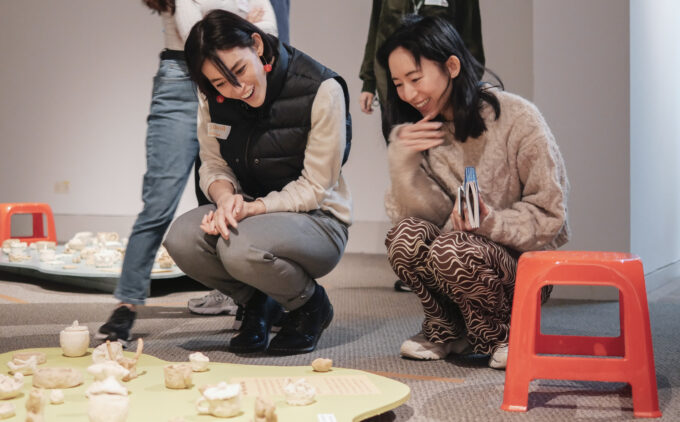
ESEA communities
Creating relationships with our local community and making work with a real legacy.
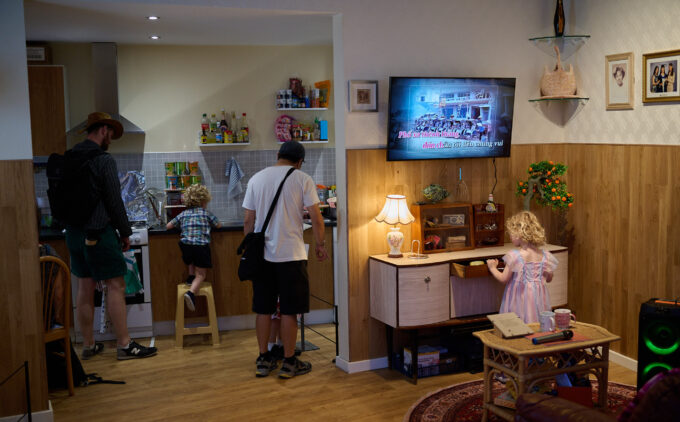
Our work
We explore diverse experiences of home across time through our galleries and programming.
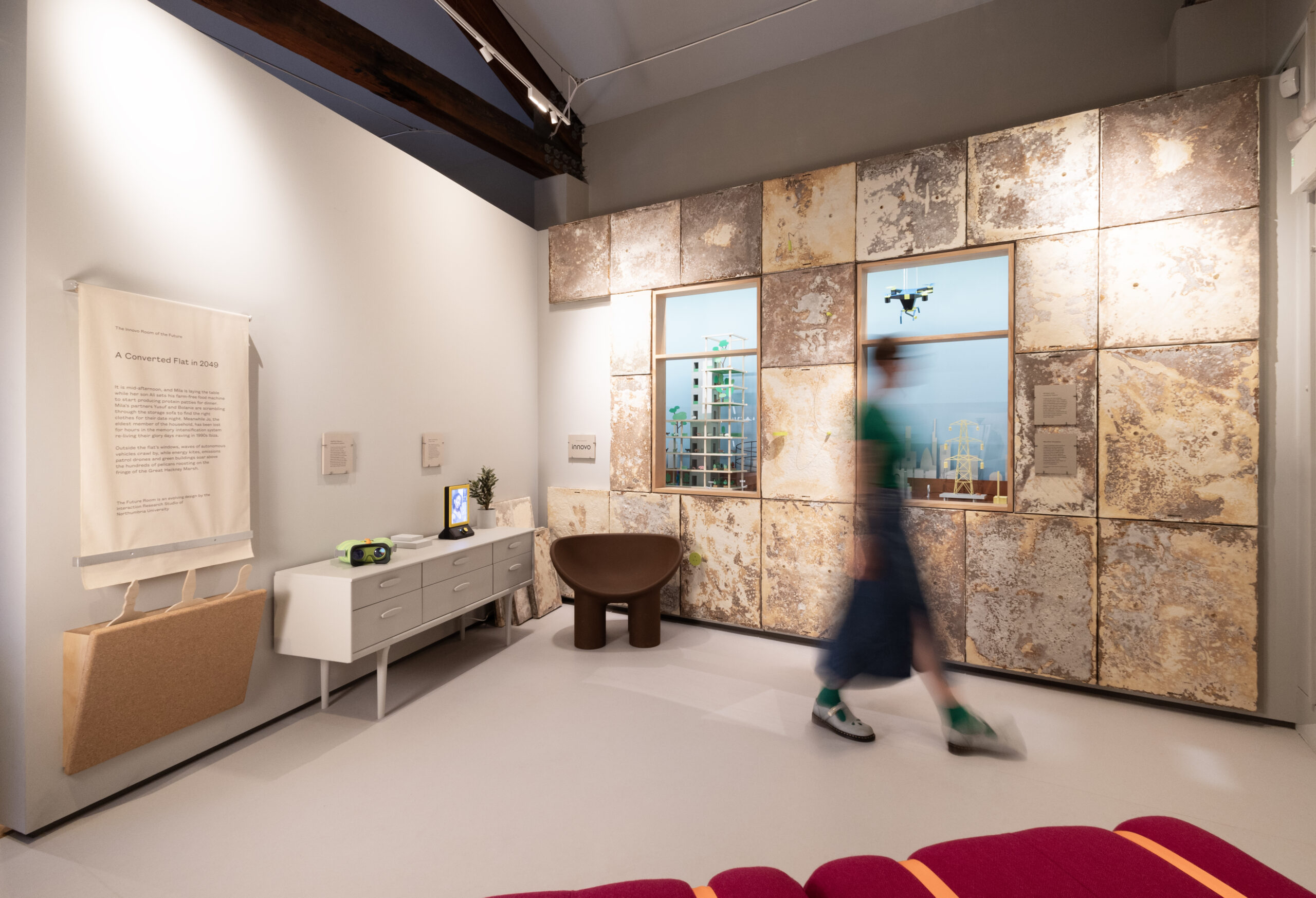
Keep in touch
Sign up to our monthly e-newsletter for the latest news, events and exhibitions.
